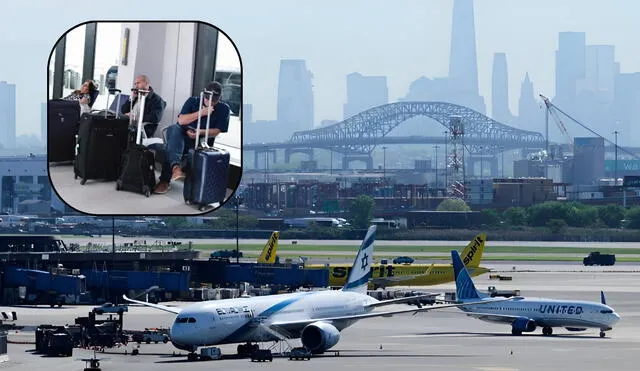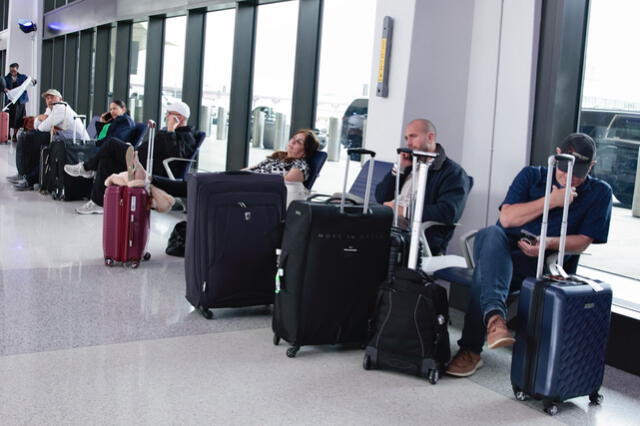Newark Airport in New Jersey faces fourth system outage in two weeks, FAA investigates ongoing issues
A fourth system failure at Newark Airport has intensified scrutiny on the FAA’s outdated infrastructure and staffing shortages, raising urgent concerns about public safety and the future of U.S. air travel just ahead of peak summer season.

In just three weeks, Newark Liberty International Airport in New Jersey has incurred four air traffic control system outages, presenting serious concerns over the stability of U.S. aviation infrastructure. The most recent instance occurred on May 19, 2025, when a two-second failure of the radio frequency at the Philadelphia Terminal Radar Approach Control (TRACON) facility, rendered communications, although all were safe and remained separated, average delays of 23 minutes in the air. This outage comes to bear on intermittent failures since April 28.
The Federal Aviation Administration (FAA) has commenced investigation into these outages, which are said to stem from outdated equipment and staffing shortages. Air Traffic controllers at Newark will need to brief with those at Philadelphia TRACON, who have issues with an aging system and under-staffing. Transportation Secretary Sean Duffy has recognized these systemic issues, calling for a complete transformation of the air traffic control system and has proposed a multibillion-dollar plan to affect a modernization program in the coming years. Additionally, the FAA has established an emergency task force to prevent more outages and is prioritizing improvement efforts.

ALSO SEE: Trump Administration agrees to $5 million settlement in Ashli Babbitt wrongful death lawsuit
FAA faces pressure to modernize Newark Airport systems amid flight caps and delays
In light of the increased delays, the FAA has taken some short-term actions to lessen congestion at Newark Airport, including: This includes capping arrivals at 28 an hour in order to complete runway construction and limited staffing. The construction work is scheduled to take place every day until June 15 and then every Saturday for the rest of calendar year 2023. Another action that the FAA is in the midst of that will help support the recently completed installations for a fiberoptic telecommunications connection replacing the antiquated copper telecom lines that had been used for 60 years of the agency’s operations. The FAA is continuing to modernize the air traffic control environment to allow for more efficient operations.
All of this has brought scrutiny against the FAA from the airport community, airline executives, and government officials alike. Airlines executives from the main US carriers have met with Transportation Secretary Duffy and the FAA to discuss and identify plans to mitigate the recent operational challenges. United Airlines, which has a primary hub at Newark, is independently cancelling 35 roundtrip flights per day as a result of ongoing issues. The airline industry is encouraging the government to fast-track creating a modern way to support the air traffic control system to mitigate the current delays.
Newark Airport outages highlight urgent need to modernize U.S. Air Traffic control system
The frequent outages at Newark Airport have raised bigger questions about the air traffic control system in the U.S. Experts compare the air traffic system to the outdated technology from the Apollo 13 mission and push for significant modernization. The FAA is short approximately 3500 air traffic controllers due to pandemic-related hiring failure and retirements. Labor historian Joseph McCartin points to the current lack of functioning "demand and flight controllers" as being rooted in past systematic collapses from the 1981 Controller strike.

Passengers face delays at Newark Airport as a fourth system outage in two weeks sparks FAA investigations and growing concerns over aviation infrastructure. Photo: AFP
As the summer travel quickly comes upon us, how the FAA faces these challenges will be key to having safe and reliable travel for passengers. Having funding to modernize the air traffic system, increase staff, and other related technology things are primary reasons [to avoid additional disruption]. But moving forward implies appropriate funding (or maybe lack thereof) and improving relationships among government agencies, the airline industry, and other interests. The public is encouraged to stay informed about delays, while at Newark Airport and the rest of the air traffic scene, continues to settle.












